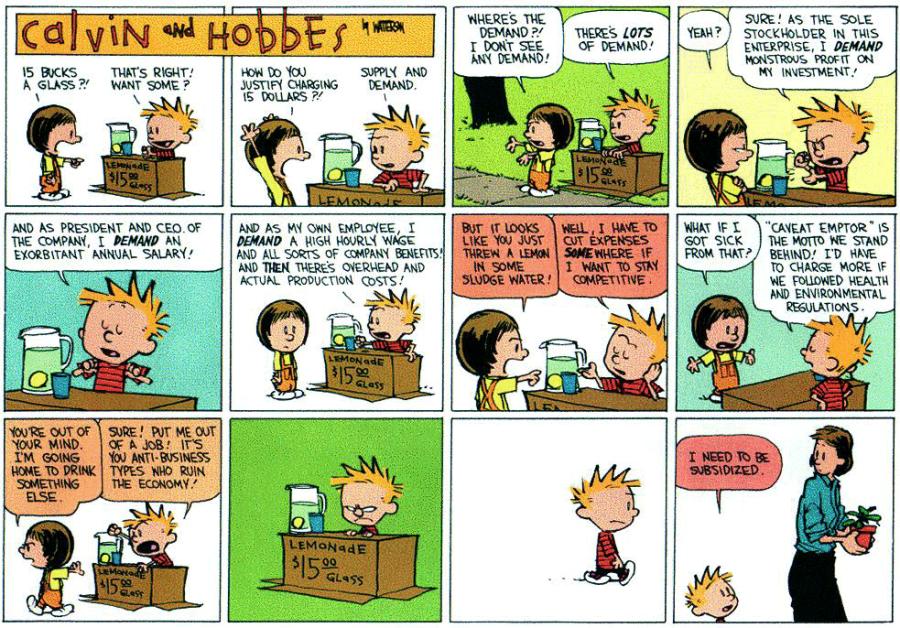Today, thanks to the genius Brainpickings site, I discovered a wonderful commencement address by Bill Watterson, the creator of the Calvin & Hobbes comics.
I have so much respect for the integrity and wisdom of this artist. Here’s a small sample:
“If you ever want to find out just how uninteresting you really are, get a job where the quality and frequency of your thoughts determine your livelihood. I’ve found that the only way I can keep writing every day, year after year, is to let my mind wander into new territories. To do that, I’ve had to cultivate a kind of mental playfulness.
[…]
At school, new ideas are thrust at you every day. Out in the world, you’ll have to find the inner motivation to search for new ideas on your own. With any luck at all, you’ll never need to take an idea and squeeze a punchline out of it, but as bright, creative people, you’ll be called upon to generate ideas and solutions all your lives. Letting your mind play is the best way to solve problems.
[…]
A playful mind is inquisitive, and learning is fun. If you indulge your natural curiosity and retain a sense of fun in new experience, I think you’ll find it functions as a sort of shock absorber for the bumpy road ahead.”
Go ahead and click here. You might be inspired.
As for the comic above, I think Mr. Watterson is correct. And I am sure he’s writing from personal experience. There’s nothing like a deadline for a kick in the pants.
Students often ask about writer’s block. They seem fascinated by it. I tell them that my father was an insurance salesman with seven children. He never had insurance block. Nope. He just went to work.
In this profession, when you are stuck?
Make something up!
I discussed this with author Todd Strasser the other day at an event in Walkill, NY. He agreed and said [sic]: “No reader ever opens a book, points to page 112, and complains, ‘You just made this part up.'”
Because: of course.
It’s how we roll.
Thank you, Bill Watterson, for your great shining example.






